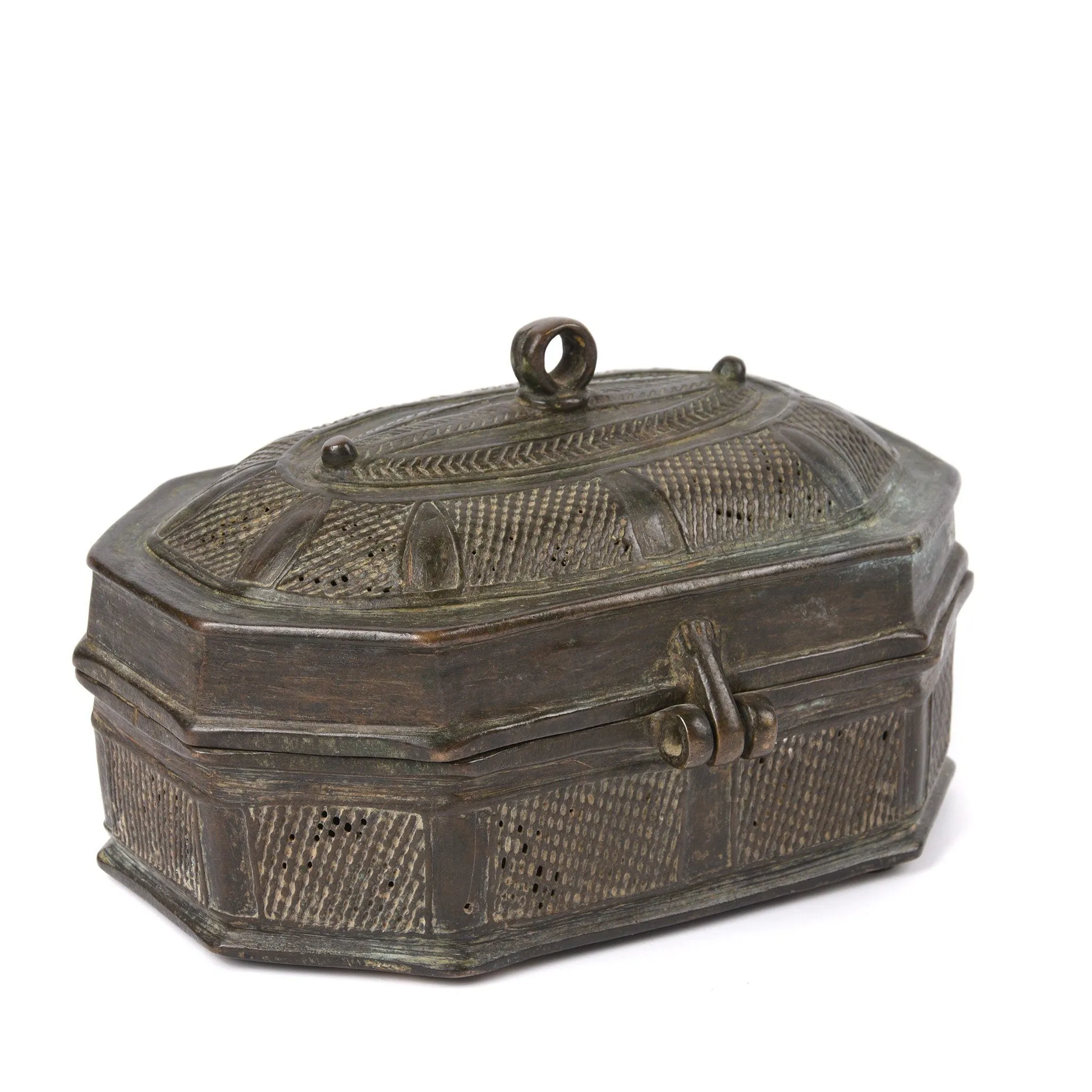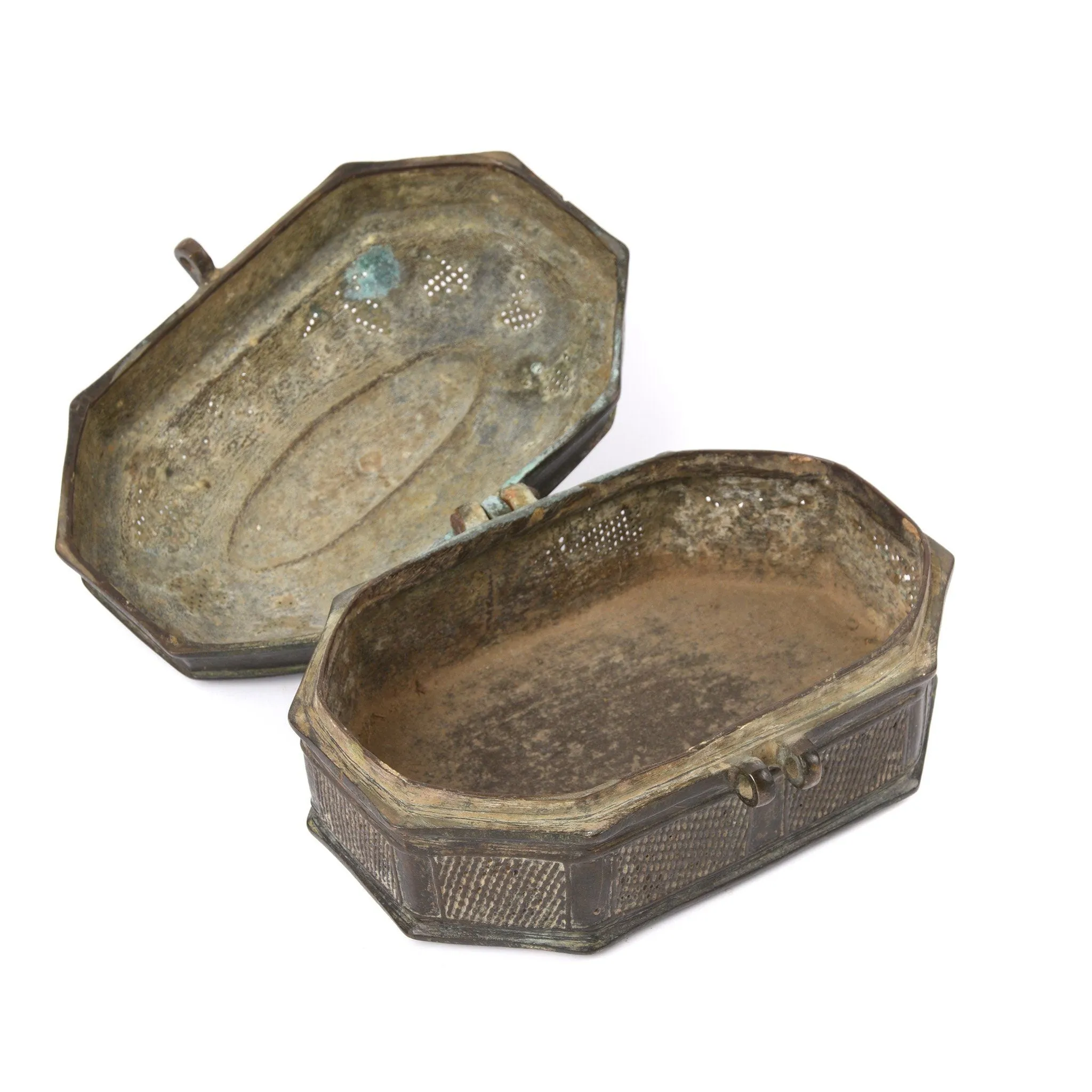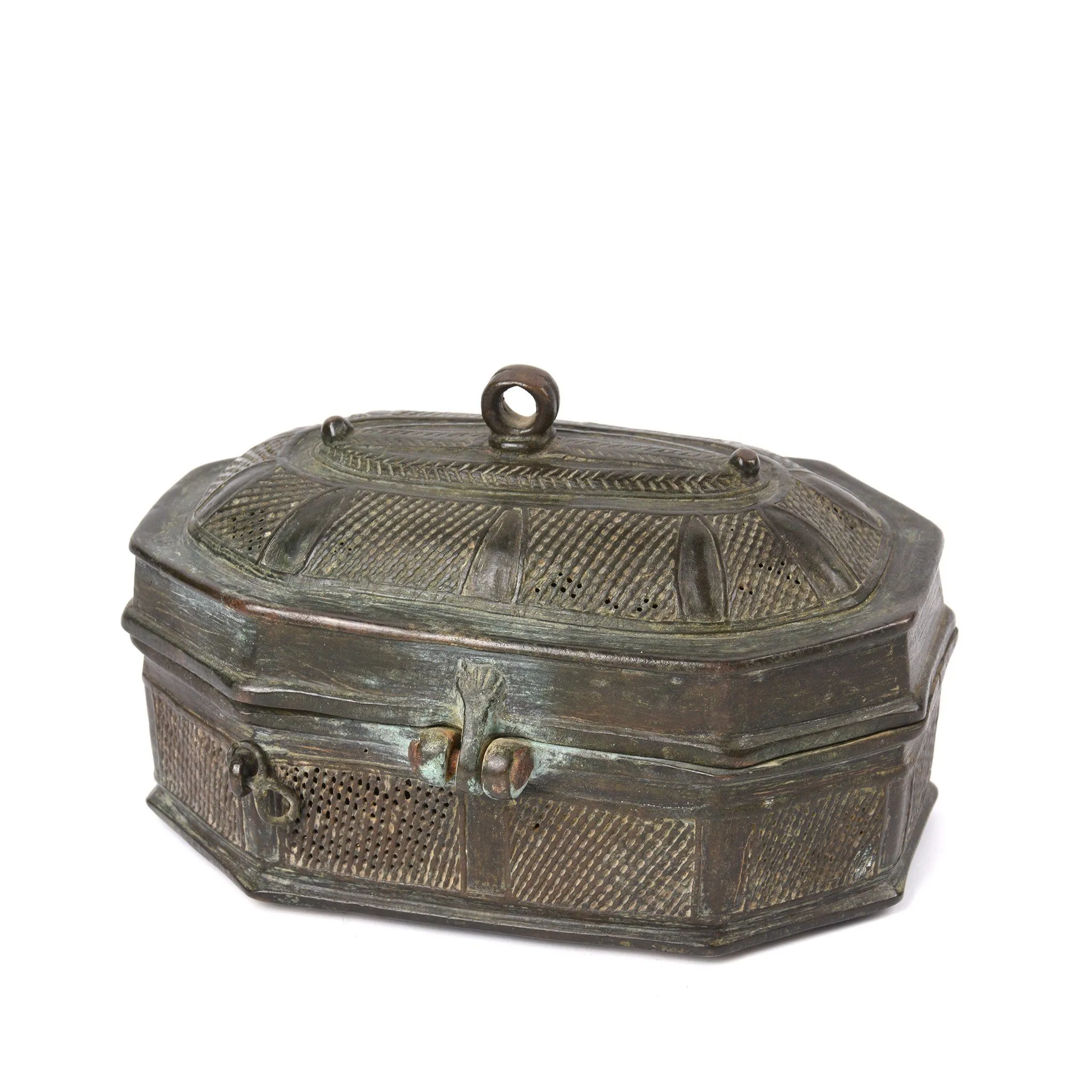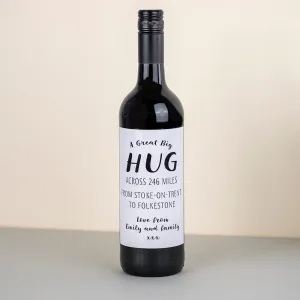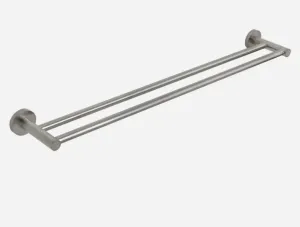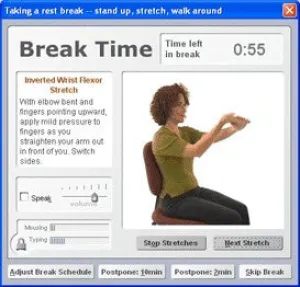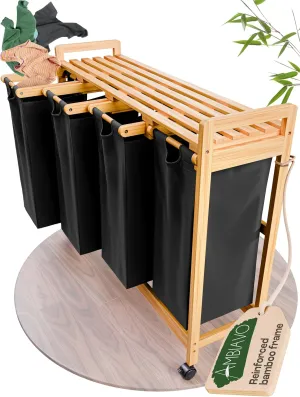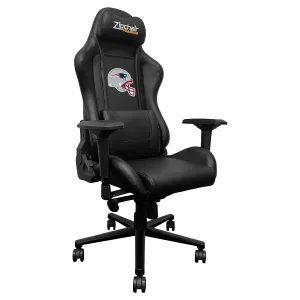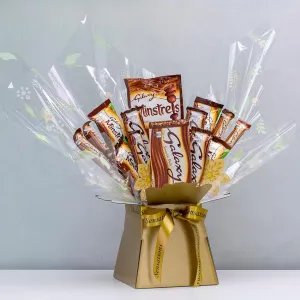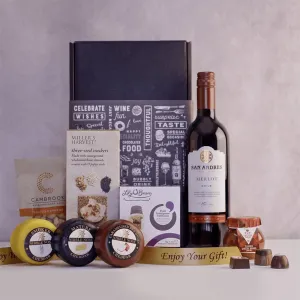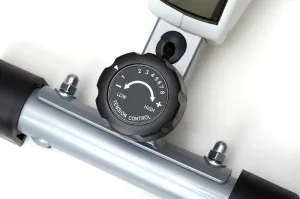This old Indian brass box is from the Dhokra tribal area of Orissa. Dokra Damar tribes are the traditional metalsmiths of West Bengal. Their technique of lost wax casting is named after their tribe. The tribe extends from Bihar to West Bengal and Orissa; members are distant cousins of the Madhya Pradesh Dokras. A few hundred years ago the Dokras of Central and Eastern India traveled south as far as Kerala and north as far as Rajasthan.
These boxes were used for storage of Paan leaves. Paan is a preparation, which combines a paste of spices in a betel leaf.
Paan is chewed for its stimulant and psychoactive effects and taken after meals to aid digestion.
Paan has many variations. Slaked lime (chunam) paste is commonly added to bind the leaves. The skilled Paan maker is known as a paanwala in North India.
Dokra also spelt Dhokra Circa 100 yrs Old - is a brass or bronze casting made using the lost wax technique. The process is commonly known as Cire Perdue. The object to be cast is sculpted from beeswax is mixed with a little oil.
When finished the entire figure is coated with clay made from termite hills to create the mould. The mould is then dried and fired in an oven with cow-dung cakes. The wax melts leaving an empty clay mould in the shape to be cast. The mould is then heated and molten brass or bronze is poured into the empty clay-mould.
When cool the clay mould is broken off exposing the cast bronze figure. The casting is then cleaned and finer details are carved to finish the piece.
From India
19 x 15 x 11.5 (wxdxh cms)
UK Delivery Charge - except Highlands & Islands £7.50
More delivery options available on checkout




